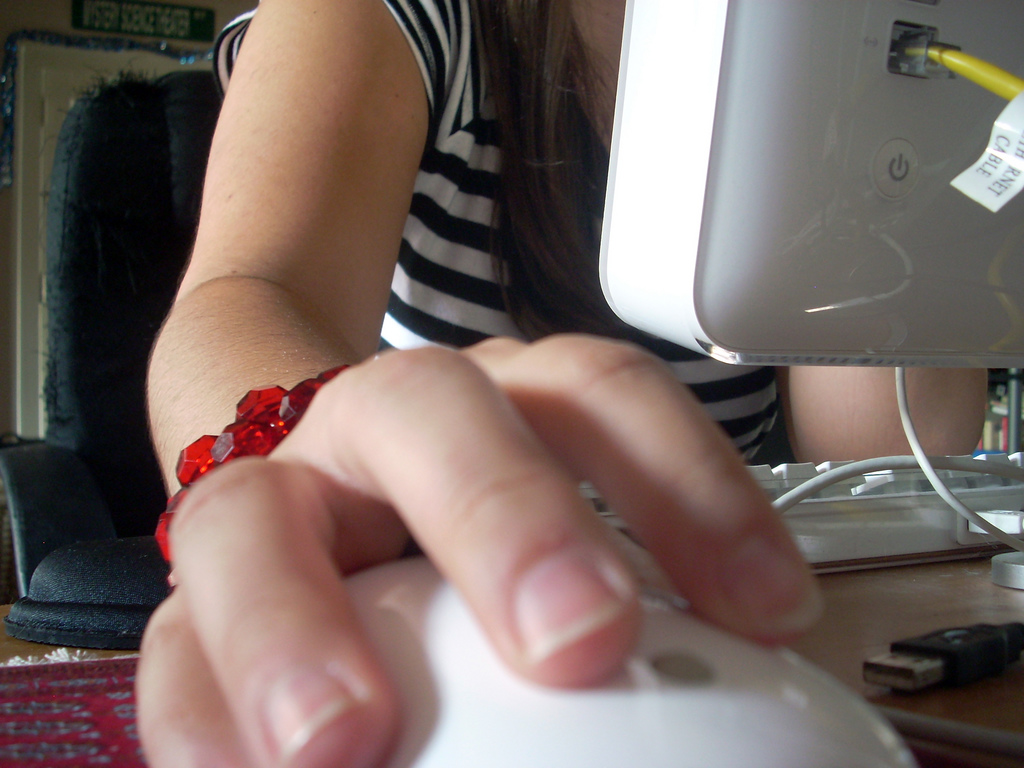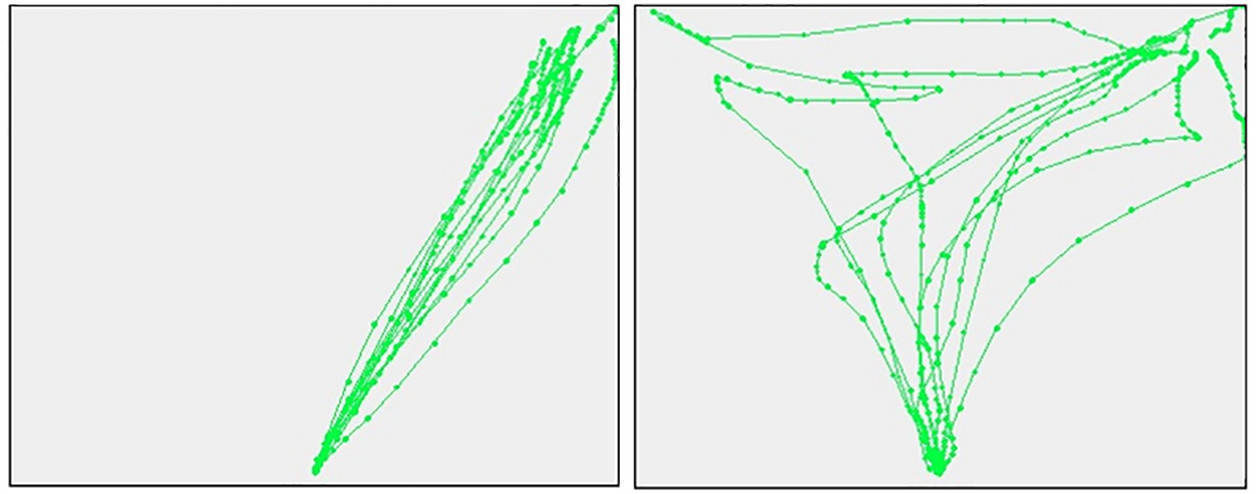Analyzing mouse-movement to see if you're lying

Here's an interesting experiment: Using mouse-movement as a lie-detection technique.
Cognitive psychologists and neuroscientists have long noted a big "tell" in human behavior: Crafting a lie takes more mental work than telling the truth. So one way to spot lies is to check someone's reaction time.
If they're telling a lie, they'll respond fractionally more slowly than if they're telling the truth. Similarly, if you're asked to elaborate on your lie, you have to think for a second to generate new, additional lies. "You're from Texas, eh? What city? What neighborhood in that city?" You can craft those lies on the fly, but it takes a bit more mental effort, resulting in micro hesitations.
So a group of Italian researchers wondered -- hey, could you use mouse movement as a proxy for reaction time?
In an experiment, they took two groups of subjects and asked them to respond to questions about their identity using an online form. One group was instructed to tell the truth; the other was to lie. The liars were given a package of information about their identity, so they could rehearse their fake persona.
But! The test also included some tricky questions which the liars hadn't rehearsed, but which were logically consistent with their fake persona. For example, if they were told you were born in January 1970, they'd be asked something like are you 48 years old now? In essence, the scientists wanted to see whether they could detect -- in the mouse movements -- the hesitation of someone concocting a lie.
Turns out ... they could. The truth-tellers moved the mouse quickly and precisely to the true answer. The folks who were lying jiggered around the screen for a bit, in a sort of hemming-and-hawing adaptation of Fitts' Law. Here are some screen-shots of a sample truth-teller (left) versus a sample liar (right):
Liars find it hard to respond to unexpected questions quickly and without errors. Their uncertainty is captured by mouse dynamics, as their motor behavior diverges from the ideal truth-teller trajectory.
The upshot is, bien sur, that it'd be pretty easy to use this technique on a web site.
Which means, of course, that it'd be equally easy to misuse this technique on a web site. I can't wait! Frankly, I bet someone's already doing it ...
(Top CC-licensed photo via Lindsey Turner)
(A tip of the hat to Damjanski for pointing out this study to me!)